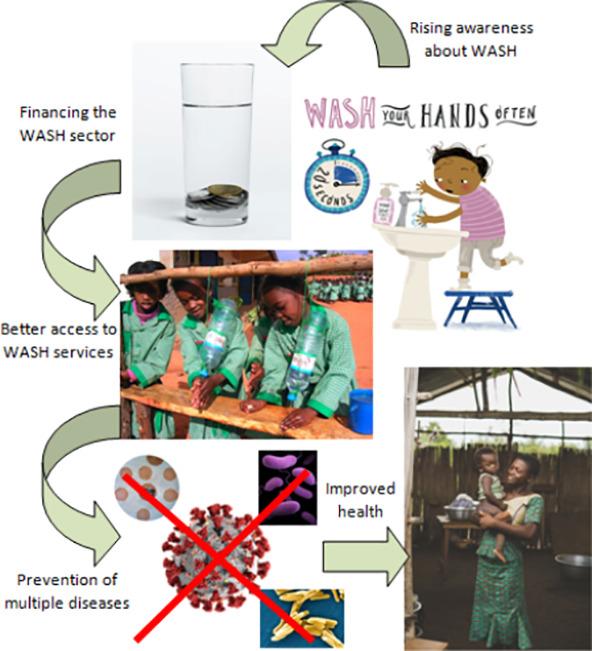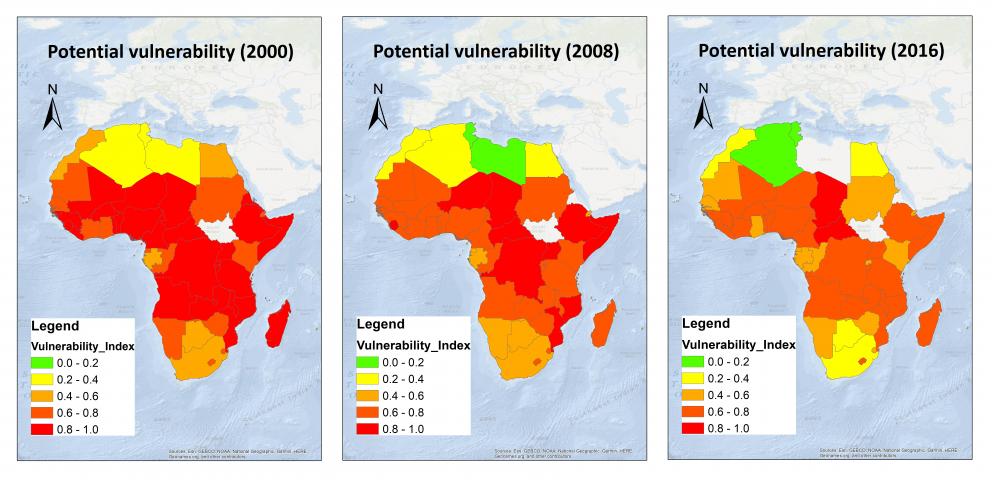
A recent JRC-led article calls for the integration of water, sanitation and hygiene services (WASH) into the international response to the COVID-19 pandemic in Africa as a win-win strategy that could also help overcome other prevalent diseases and promote the achievement of Sustainable Development Goal 6 (water and sanitation for all).
Published in Science of the Total Environment, the article explores the vulnerability of African countries to the development of respiratory infections, considering the access to healthcare and WASH services and the role of other socioeconomic variables (e.g. financial resources or demographic factors).
Enhancing WASH services as part of the response to the pandemic
“Wash your hands” has been the slogan of the past months of the pandemic, as proper handwashing with soap and water is a well-known preventive measure against multiple infectious viruses (including SARS-CoV-2).
However, this is difficult to implement in sub-Saharan Africa, where 42% of people have no access to basic water supplies.
Therefore, enhancing access to WASH services in the continent would help not only fight the current COVID-19 pandemic, but also other prevalent diseases that can be neglected when there is an infectious outbreak (e.g. directing most available resources to fight the Ebola epidemic led to a rise in untreated cases of malaria in 2014).
Effective investments in the WASH sector as part of the emergency response to the pandemic require an understanding of the links between the development of respiratory infections, access to healthcare and WASH services, and the role of other socioeconomic variables (e.g. financial resources or demographic factors).
This scientific article helps identify the most vulnerable countries and prioritise WASH interventions by combining more targeted Official Development Assistance (ODA) with migrant remittances and strengthening their coordination.
Key findings
Although the estimated vulnerability to lower respiratory infections (LRI) fell during the period 2000–2016, more than half of the countries in Africa could still be included within the most vulnerable of the three groups identified (characterised by weak healthcare systems, poor access to WASH services and high LRI mortality rates).

The probability of having a high LRI mortality rate increases when access to hygiene services is low (less than 10% of the total population), particularly for children under the age of 5.
The contribution of Official Development Assistance (ODA) to the WASH sector is uneven across the continent, with Western Africa being a main recipient region.
Other sources of financing such as migrant remittances (which seem to play a key role in health and home improvements, including enhanced access to WASH services) are expected to decrease due to the pandemic.
This could have an important impact on the well-being of populations living in the most vulnerable African countries.
The authors suggest that ODA be properly targeted to help alleviate this negative impact, and that enhanced WASH services be integrated into the international response to the COVID-19 pandemic.
Such measures could greatly improve the current situation, and the outlook for the future.
Further information
- COVID-19 pandemic in Africa: Is it time for water, sanitation and hygiene to climb up the ladder of global priorities?
- SDG6: Ensure availability and sustainable management of water and sanitation for all
Related Content
SDG6: Ensure availability and sustainable management of water and sanitation for all
Details
- Publication date
- 16 June 2021
